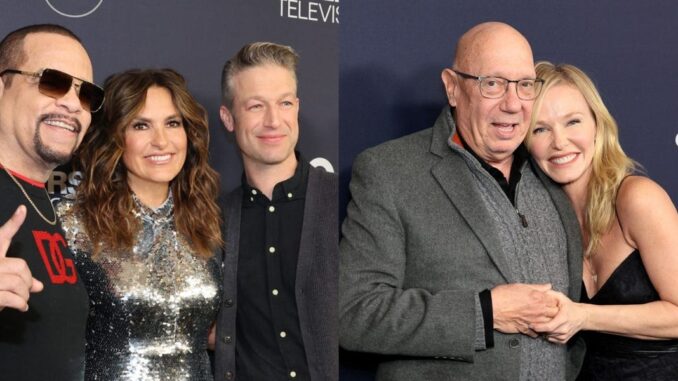
The Unflinching Gaze: Why Law & Order: SVU Remains TV’s Most Powerful Crime Drama After 25 Years
In the often-transient landscape of network television, few shows manage to carve out a legacy, let alone endure for a quarter-century. Yet, Law & Order: Special Victims Unit stands as a titan, celebrating its 25th anniversary not merely as a survivor, but as a show that, against all odds, has amplified its power and relevance. While other procedurals offer intellectual puzzles or high-octane chases, SVU delves into the harrowing, intimate darkness of crimes that leave lasting scars: sexual assault, child abuse, and domestic violence. It is this unflinching commitment to the victim's journey, coupled with profound character evolution and a mirror held up to societal shifts, that cements its status as television's most powerful crime drama.
From its genesis, SVU declared its intent to navigate waters most shows dared not tread. While its parent series, Law & Order, focused on the macrocosm of the justice system, SVU narrowed its lens to the visceral, deeply personal realm of sex crimes. This subject matter, inherently difficult and often shrouded in silence and shame, is the bedrock of its power. The show doesn't merely solve cases; it exposes the raw trauma, the systemic failures, and the intricate emotional aftermath for survivors. Viewers are not spared the uncomfortable truths – the complexities of consent, the devastating impact of grooming, the insidious nature of power imbalances. By forcing a consistent confrontation with these realities, SVU elevates itself beyond mere entertainment, becoming a crucible for difficult conversations and a beacon of empathy.
Central to this enduring power is the meticulously crafted and profoundly human journey of its characters, most notably Captain Olivia Benson. Portrayed with unparalleled depth by Mariska Hargitay, Benson has evolved from a rookie detective haunted by her own origins to a compassionate yet unyielding leader, a survivor who dedicates her life to giving a voice to the voiceless. Her emotional resilience, the palpable toll each case takes on her, and her unwavering belief in justice transform her from a fictional character into a moral compass for millions. The show thrives on these intimate character studies: Elliot Stabler's righteous fury, Fin Tutuola's streetwise pragmatism and later, surprising tenderness, and the intellectual rigor of Dr. Huang. Their personal stakes in the cases, their shared trauma, and their evolving relationships provide a vital emotional tether, illustrating that the pursuit of justice is not a sterile procedural, but a deeply human endeavor, fraught with personal cost.
Furthermore, SVU's unique strength lies in its remarkable ability to function as a living, breathing commentary on societal evolution and legal discourse. Dubbed "ripped from the headlines," the show doesn't just borrow news stories; it dissects the underlying cultural currents that enable these crimes and explores the shifting legal and ethical frameworks for addressing them. From the complexities of digital consent in the age of the internet, to the seismic shifts of the #MeToo movement, to the nuanced debates around police accountability and restorative justice, SVU has consistently adapted its narrative to reflect and interrogate contemporary issues. It has dared to ask questions about victim credibility, the pervasive nature of victim-blaming, and the systemic barriers survivors face in their quest for justice. In doing so, it transcends fictional drama, becoming an educational tool, sparking critical conversations in living rooms across America, and potentially even influencing public understanding and policy.
After 25 years, Law & Order: SVU is more than just a crime drama; it is a cultural institution. Its power is not derived from explosive car chases or brilliant deductive leaps, but from its unwavering willingness to look into the abyss of human cruelty and, more importantly, to shine a light on the path to healing and justice. By centering the victim's experience, fostering deeply empathetic characters, and courageously engaging with the ever-evolving complexities of society, SVU has cemented its place as a show that doesn't just entertain, but profoundly impacts, educates, and empowers. It reminds us, with every "dun-dun," that while darkness may persist, the relentless pursuit of justice, compassion, and understanding must endure.
